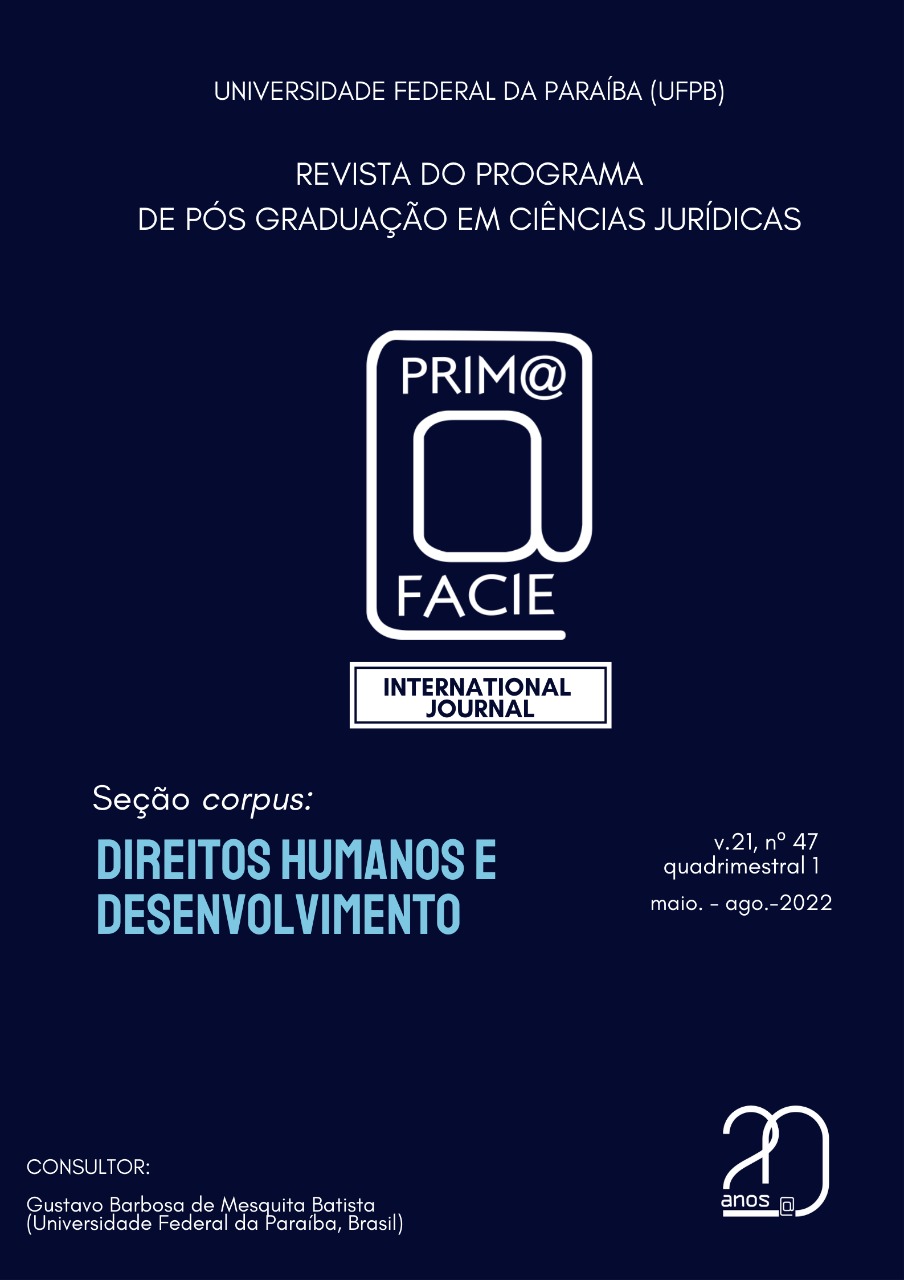Tolerance And Binding Among Constitutional And International Law
DOI:
https://doi.org/10.22478/ufpb.1678-2593.2022v21n47.61886Keywords:
Constitutional Law, International Law, Principle, ToleranceAbstract
The aim of this paper is to situation the principle tolerance in the Brazilian legal system and in the international law. Thus, it will be tried to identify similar points between national (basically in the Constitution) and international law. Consequently, there will be a perspective of normative commands deployment that converge internally and externally in the direction of the two sides positioning of States. The normative requirement of the internal action must be reflected also the external action of the rule of law. In order to carry out the research analytical and hypothetical-deductive methods have been used. The analytical method was used in order to scrutinize the principle of tolerance. The hypothetical-deductive method was used. The first was used to examine the legal categories of the tolerance principle. The hypothetical-deductive method was utilized in the search to relate for results to the incidence of those principle from a hypothetical based on bibliographical resources.Downloads
Download data is not yet available.
Downloads
Published
2022-09-12
How to Cite
MASSAÚ, G. C. Tolerance And Binding Among Constitutional And International Law. Prim@ Facie - Law, History and Politics, [S. l.], v. 21, n. 47, 2022. DOI: 10.22478/ufpb.1678-2593.2022v21n47.61886. Disponível em: https://periodicos.ufpb.br/ojs/index.php/primafacie/article/view/61886. Acesso em: 20 dec. 2024.
Issue
Section
Articles
License
Copyright (c) 2022 A Prim@ Facie detém direitos exclusivos de publicação e distribuição sob concessão absolutamente franca da parte do autor, ou autores.

This work is licensed under a Creative Commons Attribution-NonCommercial-NoDerivatives 4.0 International License.
Os autores estão cientes de que transferem seus direitos de publicação e distribuição à revista Prima Facie. Os autores autorizam o uso do trabalho para fins não-comerciais, incluindo direito de enviar o trabalho em bases de dados de Acesso Livre. As provas finais poderão não ser enviadas aos autores antes da publicação, seguindo a revista seu padrão técnico explicitado nas suas normas e nos formatos praticados em acordo com a CAPES e com padrões de excelência adotados. As opiniões emitidas pelos autores são de sua exclusiva responsabilidade não sendo a revista solidária da livre opinião exposta por eles.

